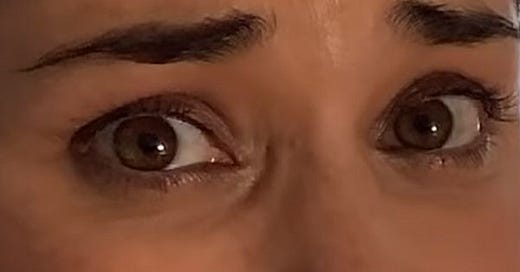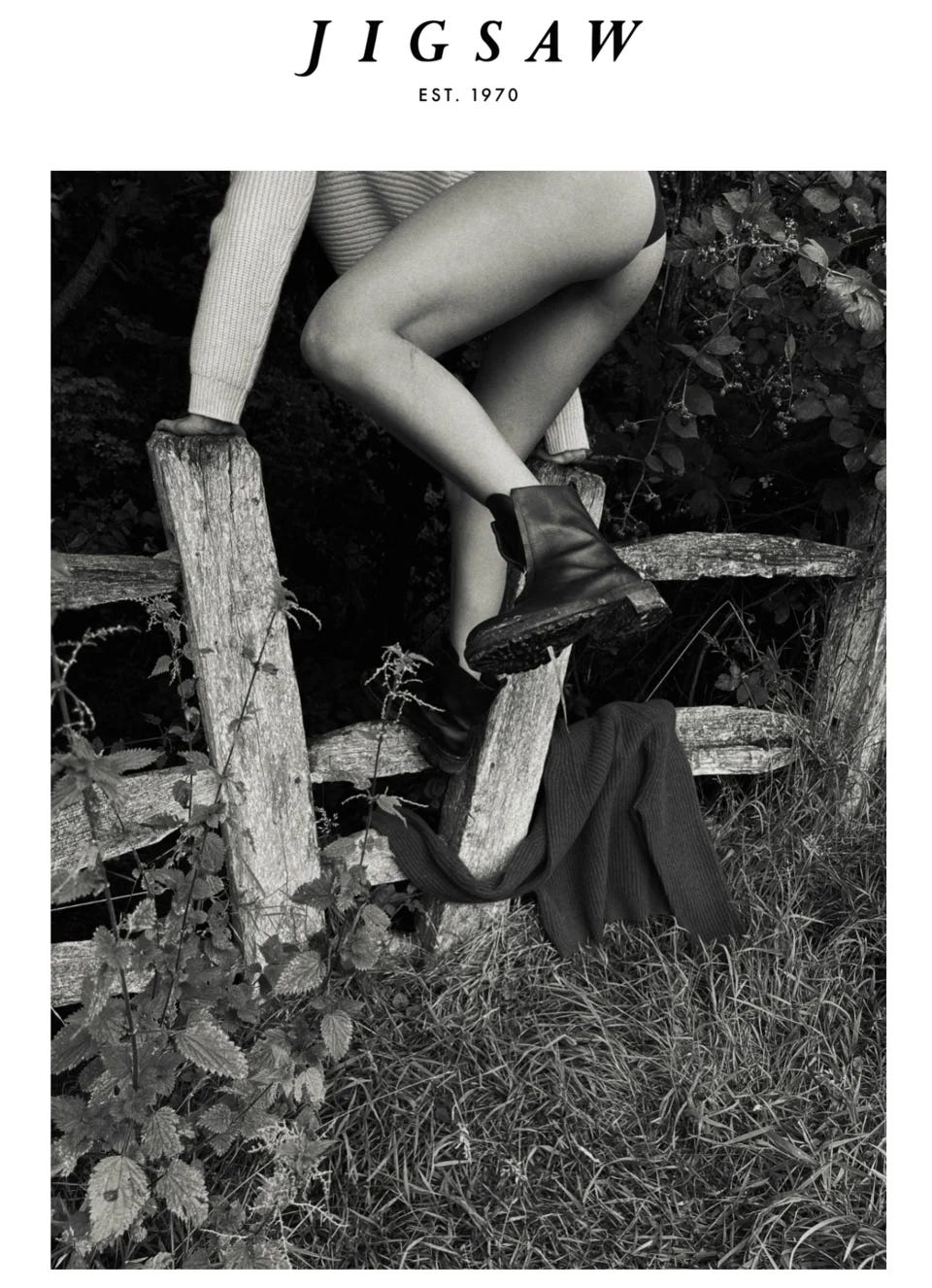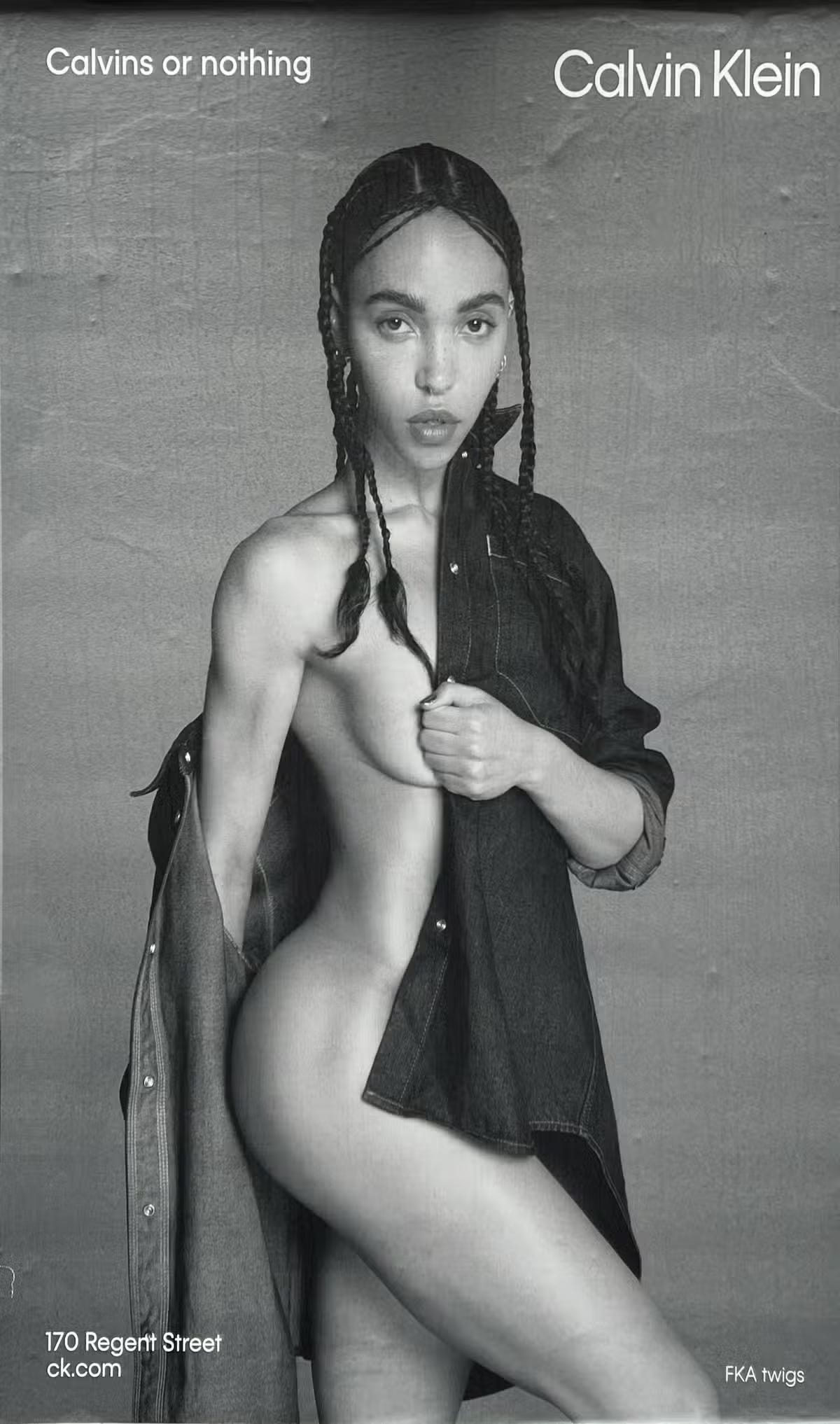Disney killed Tinker Bell. Patricia Battle explains on May 7th why everyone’s favorite fairy is gone (spoiler alert: it’s not because people didn’t clap). 1
Disney World has subtly confirmed that the character will not be returning for meet-and-greets anytime soon.
Tinker Bell has reportedly faced scrutiny from Disney’s Stories Matter team ahead of the debut of Disney+ in 2019. The team reportedly flagged and labeled the character to Disney executives as "potentially problematic," claiming that she is “body conscious” and “jealous of Peter Pan’s attention,” according to a 2022 report from The New York Times.
“Body conscious?” Did Tink spend too much time on treadmills at the Neverland gym? Maybe she was repeatedly vomiting into bags and hiding them in Wendy’s closet. Or is this the smoking gun?
Yes, Ms. Bell looked at herself in the mirror and was insecure about her hips. That’s her sin, we are assured. And, with apologies to George Strait’s “Oceanfront Property,” if you buy that they’ll throw the Francis Scott Key Bridge in, free.
Tinker’s real transgression is that she’s conscious of her smokin’ hot body. After all, if she can’t accept her physique, what chance do the rest of us woeful, beastly creatures have? Body positivity rhetoric inevitably circles back to targeting a sexy fairy woman.
Balderdash, you say? First, nobody says balderdash anymore, you weirdo. Second, please take a moment to objectify these sexy quotes:
Lauren Hart, “What Is The Tinkerbell Effect In Psychology?” May 25, 2024. 2
Just like Peter Pan’s fairy, they try to impress and are perpetually unfulfilled, compulsively seductive, and even manipulative.
Madison Wilson, “The Problem With Disney.” April 27, 2017. 3
This depiction of a woman’s body is harmful to the audience. Tinkerbell has an impossibly tiny waist and large hips and a round butt, a very desirable figure from a male’s point of view. And yet, she is still disappointed in her physical appearance.
Breanna Scoville, “Some of Disney’s Most Racist and Sexist Moments.” December 12, 2019. 4
To add more to the sexualization of her body, Tinkerbell is seen struggling to get herself out of a keyhole. For some reason, Disney thought this was a great opportunity to show off her whitey tightys and have the camera focusing on her rear end as she struggles to fit her hips through the keyhole.
“Body conscious” is the modern version of whispering to your friends, “That bitch Bell is too hot for her own good.”
Somewhere along the way, the real dangers associated with objectifying women have been overwhelmed by a warped interpretation. It’s a movement intent on raising the stakes by declaring it a heinous act while subsequently defining more and more situations as examples of objectification.
These Boots Were Made For Objectifying
Josie Clarke details a 2021 advertisement from Jigsaw (the clothing retailer, not the horror villain) that was banned because it objectified women. 5
An ad for fashion chain Jigsaw that featured a model climbing over a fence in her underpants has been banned for being likely to cause serious offence by objectifying women.
An email from the clothing retailer in September stated in the subject line, “These boots were made for walking”, and included a picture of a woman climbing over a fence wearing a jumper, boots and only underpants on her bottom half.
The offensive picture:
In January of this year a Calvin Klein advert featuring FKA twigs crossed the objectification demarcation line. 6
The Advertising Standards Authority (ASA) found the ad was likely to cause serious offence by objectifying women. The regulator ruled the "image's composition placed viewers' focus on the model's body rather than on the clothing being advertised".
While there’s no denying these ads emphasize a model’s body over the clothing, it is a common practice in promoting products. Michael Jordan’s “Just Do It” Nike campaign fixated on an athlete flying in the air rather than the shoes being advertised. The commercials or print ads never had Jordan highlighting the texture and strength of the shoelaces.
Ads like the ones from Jigsaw and Calvin Klein are viewed differently because physical attractiveness is viewed differently than other assets. At best, beauty is considered to be unearned. At worst, it is perceived as something sinister or manipulative. You’ll find many rendering judgements on whether a model is revealing too much skin in an advertisement. Good luck finding someone complaining that Jordan jumped too high in one of those Nike commercials.
Maybe She’s Born With It
Somewhere along the way objectifying police evolved beyond sexually suggestive content by complaining about sexy women, in and of themselves. Brands were urged to feature “regular” women wearing their bras, applying their deodorant, showering with their shampoo, etc.
Historically, most advertising content associates products with aspirational imagery or ideals. Breathtaking driving, fantasy situations, and reality defying accomplishments are just a few scenarios where we are stirred by marketing because of wish fulfillment, not because of relatable realism. Why are women with exceptional beauty treated differently? This underlying prejudice is hinted at by the iconic Maybelline slogan.
Some women are naturally blessed with appealing physical traits. That’s not the whole story as many other skills contribute to how impactful they are, like work ethic or mastering facial expressions, body angles, makeup techniques, etc. They’ve complemented their natural attributes with learned skills and effort, no different than a man with a great singing voice learning how to breathe properly when performing or a woman with a high IQ acquiring knowledge at law school.
Because physical appearance is dismissed as an earned asset, we diminish harms experienced by these women in their careers. To fight the objectification of women, it’s been decided that attractive women should be denied job opportunities so we can promote “all body types” in arenas like commercials, television shows, and Sports Illustrated Swimsuit issues. In the 1990’s, Fox executives worried Gillian Anderson wasn’t hot enough to be cast as the female lead for The X Files. If the actress and show emerged today within our contemporary sensibility, The Mary Sue website would write about how Anderson was too much of a sexpot to realistically portray an FBI agent.
The pursuit of some sort of Aristotelian golden mean in everything from advertising to television shows is unique to appearance. There’s no outcry for Netflix to greenlight specials for comedians who generate fewer laughs. The National Basketball Association isn’t being pressured to diversify teams by adding players who run slower.
Spend an hour browsing Notes (Substack’s version of Twitter) and you’ll find endless commentary expressing concern over Artificial Intelligence potentially replacing human writers, singers, painters, and photographers. What you aren’t likely to find is anyone talking about how AI women are already competing with human influencers on Instagram for views and brand ambassador relationships with companies.
Committing Bodily (Image) Harm
Ignoring the plight of Instagram influencers may be a benign aggression, an unintended omission from Substack creators. However, for those writing the new rules of objectifying, indignation is purposeful. The argument is that influencers create body image issues for women and especially young girls by promoting unrealistic expectations for physical appearance.
The real problem here is the medium, not the messengers. How content is consumed on Instagram and TikTok yields a wide range of harmful effects. Manipulating views on politics. Exacerbating racial tensions. Endorsing cringeworthy dance routines.
Despite this, female influencers routinely catch more shrapnel than anyone else in the battle against social media. They are told to stop using deceptive camera angles, lighting techniques, and to present themselves more modestly. You know, just like they tell J.K. Rowling to write simpler stories or air traffic controllers to mix in some mid-air collisions every now and then.
For those who remain unconvinced of this double standard, the prosecution calls Monica Ruiz to the stand.
Peloton Pelting
It was the Christmas gift that broke the internet. In 2019, actress Monica Ruiz portrayed a wife who receives a Peloton bike as a gift from her husband. She decided to document her journey with the bike, much to the chagrin horror of those who saw the commercial.
At the time it seemed perfectly reasonable to mock the advertisement’s message. Some went further, picking up their pitchfork and expressing outrage at a sexist husband objectifying his wife, a woman who was clearly unwell and suffering from being “body conscious.” To be fair, this expression didn’t help her cause.
Rewatching it now, years after the viral contagion was contained, it doesn’t seem all that bad. Perhaps part of the reaction was driven by a distaste for a hot woman who sold out to the patriarchy by trying to get hotter.
Or, alternatively, “That bitch Tinker Bell needs to get off the bike.”
Aspirational Beauty
Influencers were shamed for socializing during COVID-19 when society should have praised them for showing how important maintaining a healthy lifestyle could be when battling illness. For Americans, who live in the 12th most obese country worldwide and first overall among high income countries, it’s time to put down the fatphobic and objectification hot takes and honor thy lovely ladies.
Instead of dwelling on potential body issue harms, the focus should be on praising the positive benefit of promoting healthy bodies. It is reasonable to be unsatisfied with your body. Just as there’s nothing wrong with an accomplished musician practicing for hours in the hopes of getting just a little bit better, it’s even ok to be obsessive about improving an already fit physique if that’s something you value in your life.
This is all something we used to understand, even appreciate. These paragons of beauty act as muses in elevating society. A former Creative Director at the Sterling Cooper Advertising Agency summed it up best during a pitch to Jaguar.
We must get tired of hearing what a beautiful thing this car is. But I've met a lot of beautiful women in my life and despite their protestations, they never tire of hearing it. But when deep beauty is encountered, it arouses deep emotions because it creates a desire, as it is, by nature, unattainable. We're taught to think that function is all that matters, but we have a natural longing for this other thing…
…What price would we pay? What behavior would we forgive? If they weren't pretty, if they weren't temperamental, if they weren't beyond our reach, a little out of control, would we love them like we do? Jaguar. At last, something beautiful you can truly own.
(Don Draper, Mad Men)
Don Draper would never ask Tinker Bell to change who she was to make others around her more comfortable.
Liked This? You Might Enjoy -
Support Sydney Sweeney’s Boobs
(A rebuttal to the Slate column, “Sydney Sweeney’s Boobs Are Not That Big.”)
https://speaktruthtoflour.substack.com/p/support-sydney-sweeneys-boobs
https://ca.movies.yahoo.com/finance/news/fashion-chain-jigsaw-ad-banned-000100090.html
Fashion Chain Jigsaw Ad Banned For ‘Objectifying’ Women, December 21, 2021.
https://www.bbc.com/news/newsbeat-67933321
Calvin Klein: Ad With FKA twigs Banned For Objectifying Women. Jared Evitts, January 10, 2024








Your a genius.
Its just a phase.
Beauty and health will become the main thing again soon, just watch.
You can't keep attacking something so natural and maintain it.
I'm prefer healthy people who take care of themselves and have a pride in their appearance.
Also I'm healthy and and when women flirt with me I feel happy.
Evil will consume itself.
Here's another freaky thing...
I work in natural health.. and I only hire healthy good-looking people.
So the office is full of beautiful people.
Men and women.
I'm fighting for you!
Also ... Florida...
Coming into this as someone who has worked in fitness and nutrition for the last decade, yes.
Also, I’m vain. Sue me.